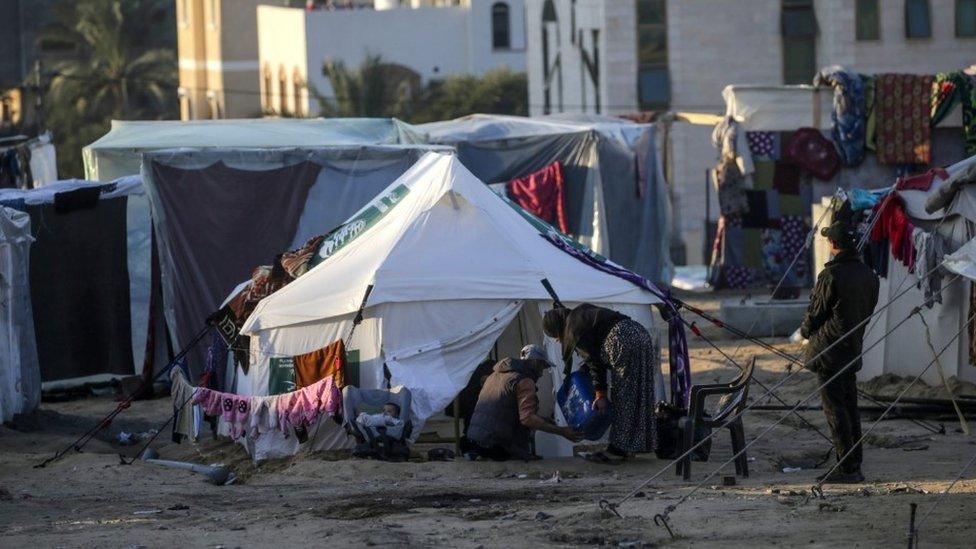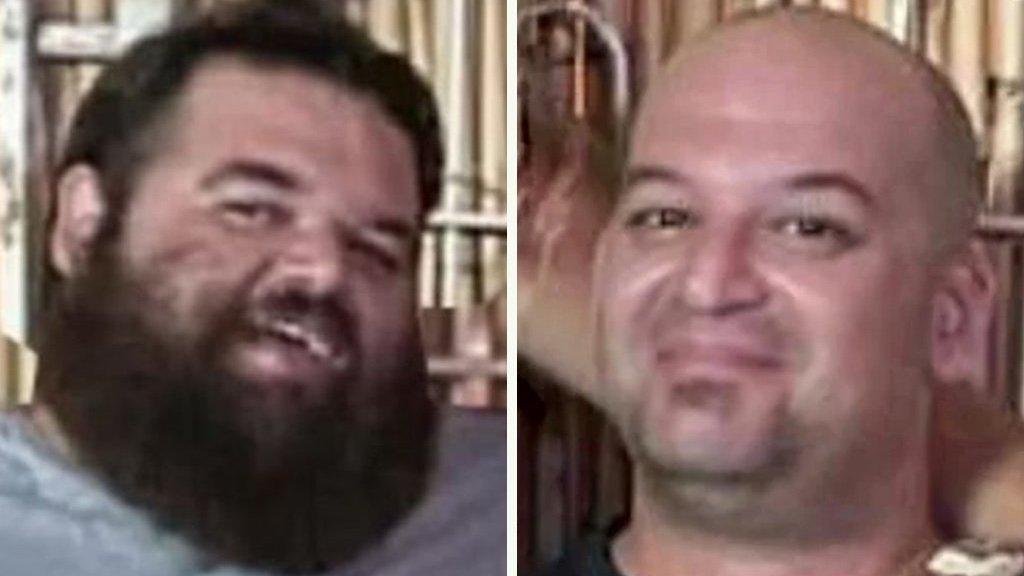Israel Gaza war: Deal reached on aid to Gaza, including to hostages
- Published

About 85% of Gaza's population has been displaced
Israel and Hamas have reached a deal to allow more humanitarian aid into war-ravaged Gaza, Qatari mediators say.
They say that under a deal brokered by Qatar and France, medicines will be given to hostages held by Hamas.
In return Israel will allow more basic supplies into Gaza. Conditions in the territory are dire after more than three months of Israeli bombardment.
Meanwhile the US says it is hopeful that further talks could lead to the release of more hostages.
The US Middle East envoy has been in Qatar to discuss the possibility of such a deal, White House national security spokesperson John Kirby said on Tuesday.
The discussions were "very serious and intensive", he added . "We are hopeful it will bear fruit and bear fruit soon."
Earlier, Qatar's foreign ministry spokesman Majed Al Ansari announced the agreement on aid.
Under the deal, the humanitarian supplies will leave the Qatari capital, Doha, for Egypt on Wednesday. The aid will then be taken to Gaza, to be delivered to civilians, while medicines are to reach Israeli captives.
More than 132 hostages are thought to be still held in Gaza.
About 240 people were captured by Hamas in a series of raids in southern Israel on 7 October. Some 1,200 people, mainly civilians, were killed.
In a letter sent to Israel's war cabinet after a ceasefire ended last year, the Hostages Families HQ group said many abductees needed regular medical attention and some were in immediate danger.
Last week Israeli PM Benjamin Netanyahu said David Barnea, head of Israel's national intelligence agency Mossad, had approached Qatar to secure a deal for providing the medicines needed.
On Tuesday Mr Netanyahu issued a statement expressing "his appreciation to all those who have assisted in the endeavour".
Drone video shows massive scale of destruction in Gaza
The Hamas attacks in October triggered Israel's intense bombardment of Gaza, which has killed more than 24,000 people so far, most of them women and children, according to the Hamas-run health ministry.
Palestinian officials say that 85% of Gaza's population has been displaced. While more aid is now getting into Gaza the UN's humanitarian chief has described the situation as "intolerable".
Israel is coming under increasing international pressure to consider a ceasefire or pause in Gaza, such is the scale of the civilian suffering.
Even its closest ally the US, which consistently defends Israel's right to self defence, has repeatedly told Prime Minister Benjamin Netanyahu that the civilian death toll is "far too high".
Last week US State Secretary Anthony Blinken cited UN figures that 90% of the population continued to face severe food insecurity, adding: "For children, the effects of long periods without sufficient food can have lifelong consequences."
"More food, more water, more medicine, other essential goods need to get into Gaza."
Correction 13th February: This article wrongly reported that about 1,300 people had been killed following the 7th October attack by Hamas. This was based on counting those who later died from their injuries in addition to the figure of more than 1,200. The article has been amended to now refer to about 1,200 deaths, a figure which includes those deaths and which Israel says is not final.
Related topics
- Published27 February
